Dr Tony Attwood – Understanding Autism Diagnostic Criteria and Why Girls often Overlooked
Understanding Autism Diagnostic Criteria

Key Insights for Understanding Autism Diagnostic Criteria:
✅ The diagnostic criteria for ASD are laid out in the DSM-5. It requires persistent deficits in social communication/interaction and restricted/repetitive behaviors.
✅ To meet the diagnostic criteria, the symptoms must be present in early childhood even if they are not recognized until later.
✅ There are 3 levels of ASD severity in DSM-5 – Level 1 is “high-functioning” autism without language or intellectual impairments. The transcript refers to this as Asperger’s syndrome.
✅ The diagnostic assessment involves exploring social relationships, communication difficulties, sensory sensitivities, restricted interests, and repetitive behaviors.
✅ Co-occurring conditions like ADHD, anxiety, OCD are common with ASD. An individual may have multiple diagnoses.
✅ Standardized diagnostic tools like the ADOS-2 and ADI-R are commonly used. But assessment also involves clinical judgment.
✅ Early comprehensive diagnostic evaluation is important for early intervention. But girls and high-functioning individuals are often diagnosed later.
✅ Diagnosis can be confusing because autistic traits exist in everyone to some degree. It’s about the number of symptoms and the impact on the person’s life.
DOWNLOAD Tony Attwood Understanding Autism Diagnostic Criteria Ebook
Tony Attwood Understanding Autism Diagnostic Criteria Ebook Cover (25 pages)
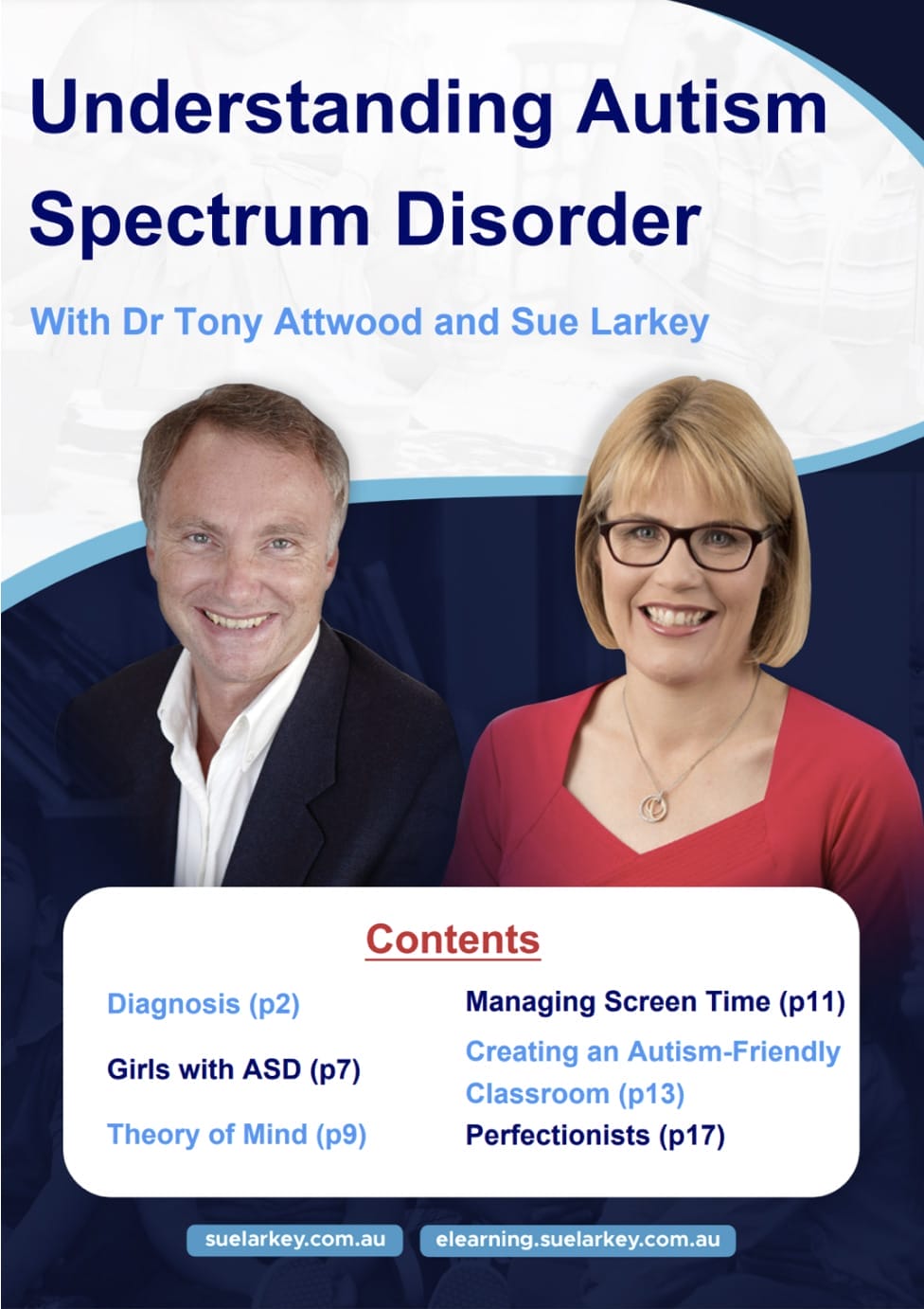
v Sample Page v
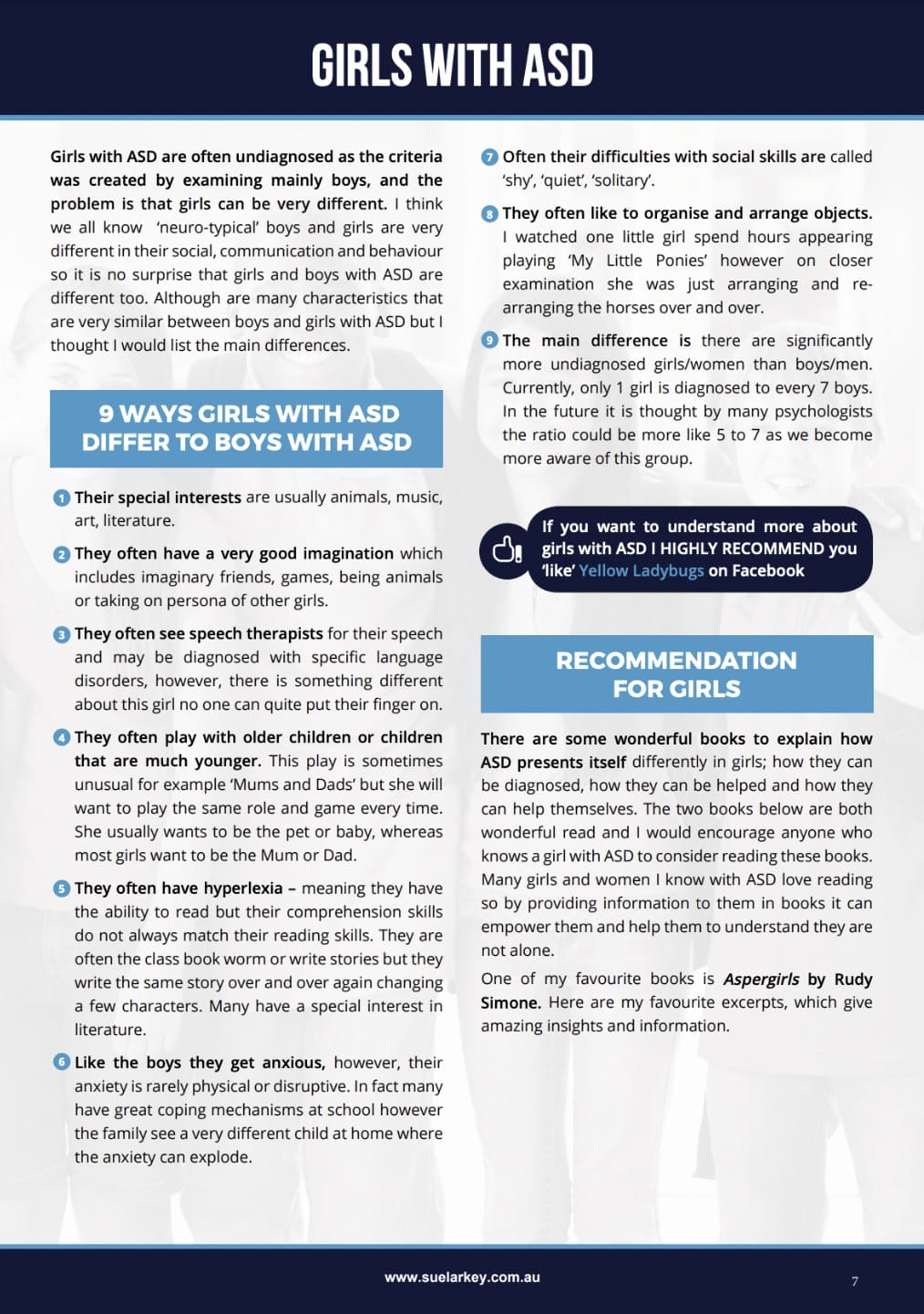
Key Insights for Understanding Autism Diagnostic Criteria for Girls with ASD:
✅ Girls with ASD tend to be more observant and try to learn social rules by watching others, reading fiction, watching soap operas, playing with dolls, etc. This allows them to imitate social behaviour and mask their difficulties.
✅ Girls are often quieter, less disruptive, and want to appease others. They may suppress their difficulties at school and have emotional meltdowns at home.
✅ Girls tend to have more unusual intensity of interests rather than unusual focus of interests compared to boys. For example, an intense interest in horses rather than an obscure topic.
✅ Girls with ASD are often overlooked and underdiagnosed because they don’t fit the stereotypical profile of autism based on boys. Books like Aspergirls, I’m an Aspie Girl, and Pretending to be Normal provide insights into girls with ASD.
✅ Girls with ASD struggle with identity, feeling like they have to pretend to be someone else that people want them to be rather than being their true selves.
Tony Attwood Understanding Autism Diagnostic Resources
-
The Complete Guide To Asperger’s Syndrome
$47.95 -
Exploring Feelings: Cognitive Behaviour Therapy to Manage Anxiety
$38.95 -
Exploring Feelings: Cognitive Behaviour Therapy to Manage Anger
$38.95 -
Asperger’s Syndrome
$40.95 -
Helping Kids and Teens With ADHD in School
$54.95 -
Exploring Feelings: For Young Children with High-Functioning Autism or Aspergers Disorder
$54.95 -
Can I Tell You About Asperger Syndrome?
$28.95 -
Kids in the Syndrome Mix
$42.95 -
Can I Tell You About OCD?
$28.95 -
Been There. Done That. Try This!
$45.95 -
Can I Tell You About Autism?
$28.95 -
CBT to Help Young People with Aspergers to Understand and Express Affection
$61.95 -
Can I Tell You About Anxiety?
$28.95 -
Can I Tell You About ADHD?
$28.95 -
Can I Tell You About Dyspraxia?
$28.95 -
Can I Tell You About Selective Mutism
$28.95 -
Exploring Depression, and Beating the Blues
$42.95 -
Ask Dr Tony
$39.95 -
Collaborative Approaches To Learning For Pupils With PDA
$37.95
Check out my Podcast about Girls on the Spectrum:
Episode 84: What Clinical Psychologist Danuta Wishes People Knew About Girls On The Spectrum
Girls with autism are often undiagnosed or diagnosed much later, because original diagnostic criteria have a boy bias. The challenge of receiving a proper diagnosis for their daughter is a early hurdle faced by many parents. I think we all know neurotypical boys and girls are very different in their social, communication and behaviour, and this is the exact same for nuerodiverse children.
To help out, I thought I would list the main differences between girls and boys with autism spectrum, as well as tips and strategies to try. Check out the blog here.
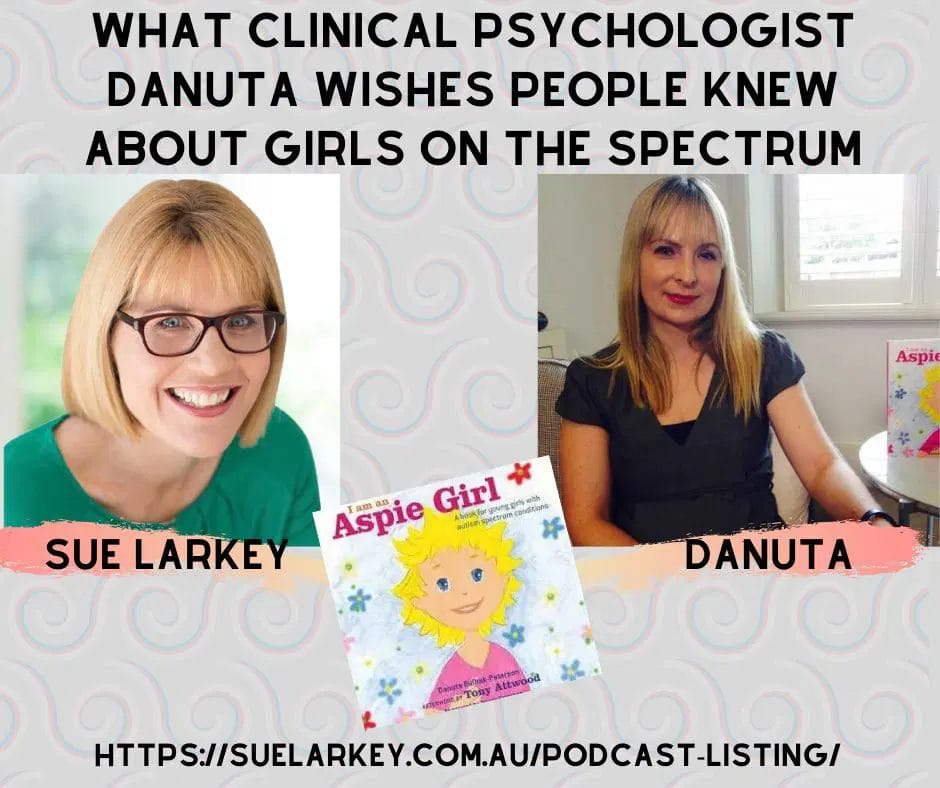
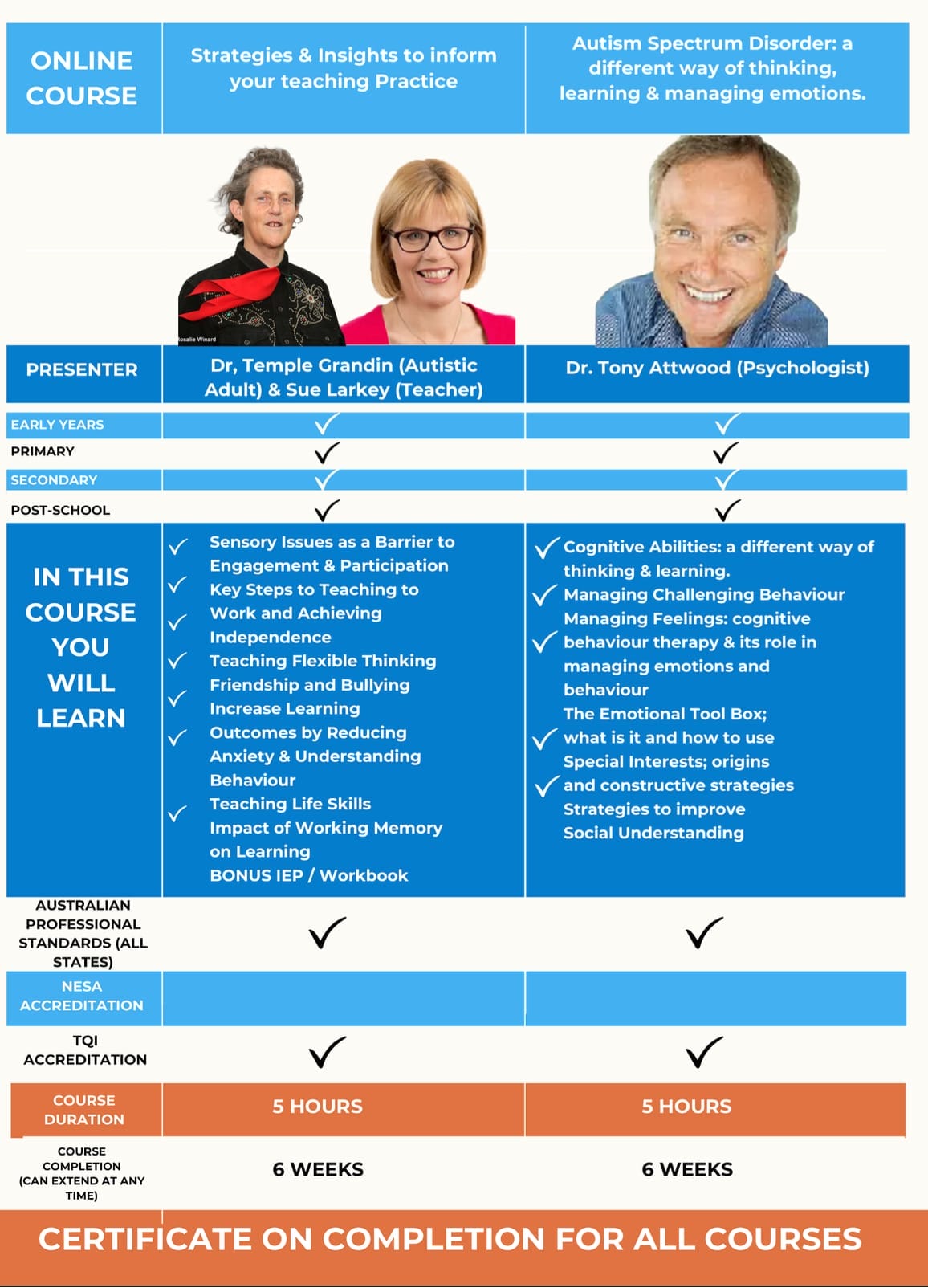
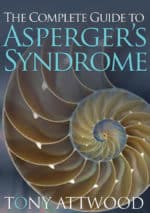
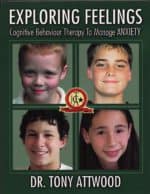


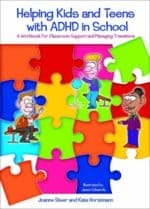
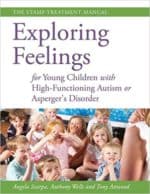


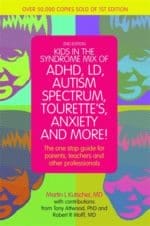
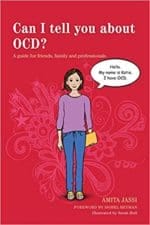


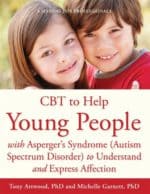

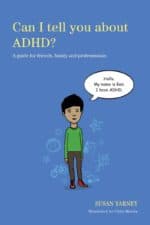
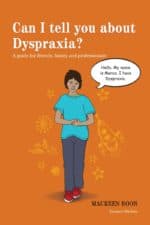

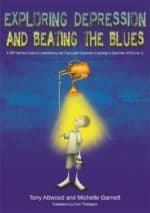






 Sorry we no longer ship items outside Australia. Please consider the digital versions of Sue’s Books –
Sorry we no longer ship items outside Australia. Please consider the digital versions of Sue’s Books – 